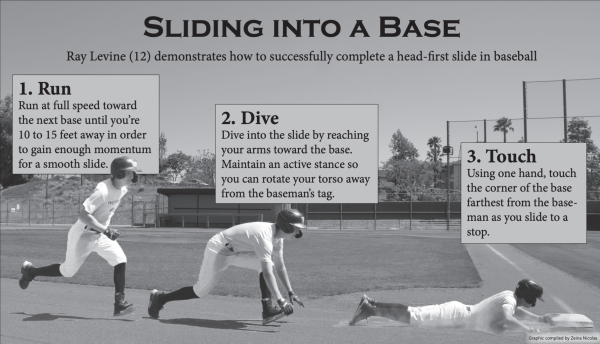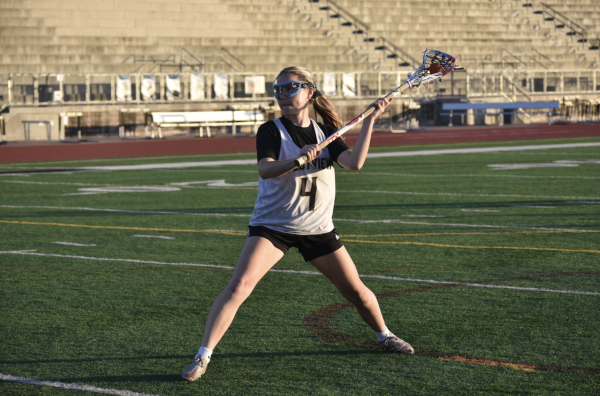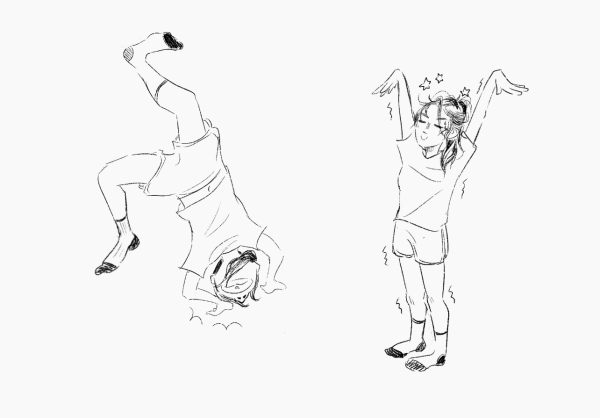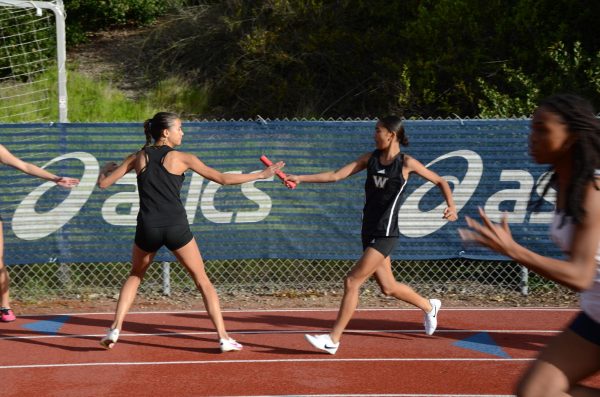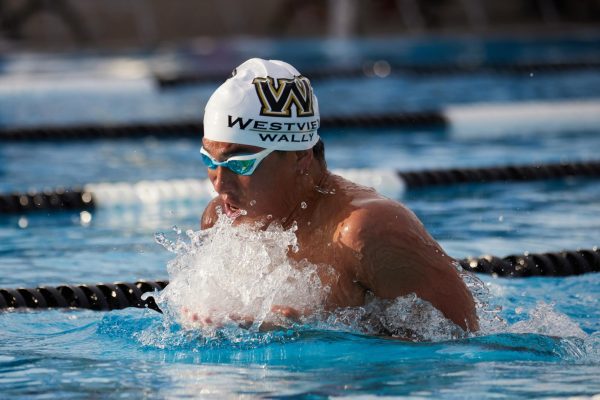Athletes train for college recruitment
February 10, 2023
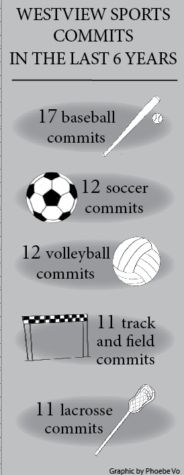
Jaden Nisperos (11) could feel an intense stare directed at him as soon as he stole the soccer ball. When he glanced up, his eyes caught hold of a college recruiter, who scribbled down notes on his every move.
Having played soccer since he was a child, playing for college naturally seemed to be the next step for him. But getting the attention of scouts was a lengthy process in the first place.
“You have to put your name out there,” Nisperos said. “The important thing is to be early in emailing the colleges and scouts. Sending videos and communicating with them, do all of that early.”
AJ Klubeck (12), a senior who has already committed to playing Division 1 baseball for San Diego State University, said he had to undergo a similar process. Klubeck began emailing colleges as early as his freshman and sophomore year, to little avail.
“Over my three years [of trying to get recruited], I reached out to over 200 scouts,” Klubeck said. “I didn’t really get many responses until my junior year.”
Klubeck and Nisperos agree that contacting scouts is a highly important step in getting recruited. Making connections with your current coaches can also help immensely.
“Coaches are important because they know exactly who to email and a lot of information about the recruitment process and more importantly, [they know] you,” Nisperos said. “A coach or mentor knows your [strengths and weaknesses] and knows what scouts are looking for. ”
For long-distance swimmer Sébastien Wenger (11), a part of the recruitment process that he has focused on is selecting schools that best align with his personal interests.
“I would say don’t rush into the process,” Wenger said. “Take your time and really get to know and research the schools, because it is a really big commitment.”
To maintain their skills outside of their school sports seasons, Nisperos, Klubeck, and Wenger all participate in local club teams throughout the year. Though it is not completely nescesary, Nisperos said that training and playing games outside schools just allowed him more opportunties to catch college’s attention.
For Klubeck, he devised a training regimen that prepared him to play in front of scouts.
“[My regimen] centered around weightlifting, gaining weight and just overall being stronger an+d faster for any position, infield or outfield,” Klubeck said. “This helped me to be more versatile and I think that’s the main reason I got scouted.”
Of course, being skilled physically in the sport you participate in is important; however, Nisperos said that colleges also look out for a strong player in the mental sense.
“Colleges want someone who will not falter under pressure,” Nisperos said.
He recalls a game where there were around 30 scouts.
“Every time I touched the ball, it couldn’t be a mistake or else they would write [it] down,” Nisperos said. “It was very nerve-wracking at first, but one of the main things about sports is that there’s always someone watching, and being able to play at the next level requires that you have to be comfortable with that aspect.”
All three players emphasize the importance of being themselves during their games and college interviews. Nisperos says that colleges want to see you in your raw form; they want to see—you. Wenger agrees with this.
“[Colleges] obviously want people who are going to score and play at the NCAA level,” Wenger said. “But they’re also looking for people who are going to fit in on the team. Making a good impression on the coaches, not only in your game, but also with your character, is what is going to get you a spot on the team.”
Over time, though the recruitment process may be stressful, Klubeck says that it will get better.
“Once I saw the first scout at my game, had the first call, first conversation, and first interview out of the way, then I kind of settled into my own,” Klubeck said. “I started to enjoy the process.”
Wenger emphasized that it is not just a one-way interaction between the college and the player.
“[Colleges] are trying to convince you to come to their team, so it is mutual,” Wenger said. “They’re trying to sell themselves to you as much as you are trying to sell yourself to them—so, just be you. Have fun. Don’t stress too much about it. If it’s the right school, everything will work out.



![Kamila Nava (11) [right] and Alexi Stysis (11) run at Torrey Pines State Beach, April 27. Nava enjoys going for runs outdoors and tries to run in nature as frequently as possible.](https://wvnexus.org/wp-content/uploads/2024/05/DSCF2398-e1714686258569-400x600.jpg)
